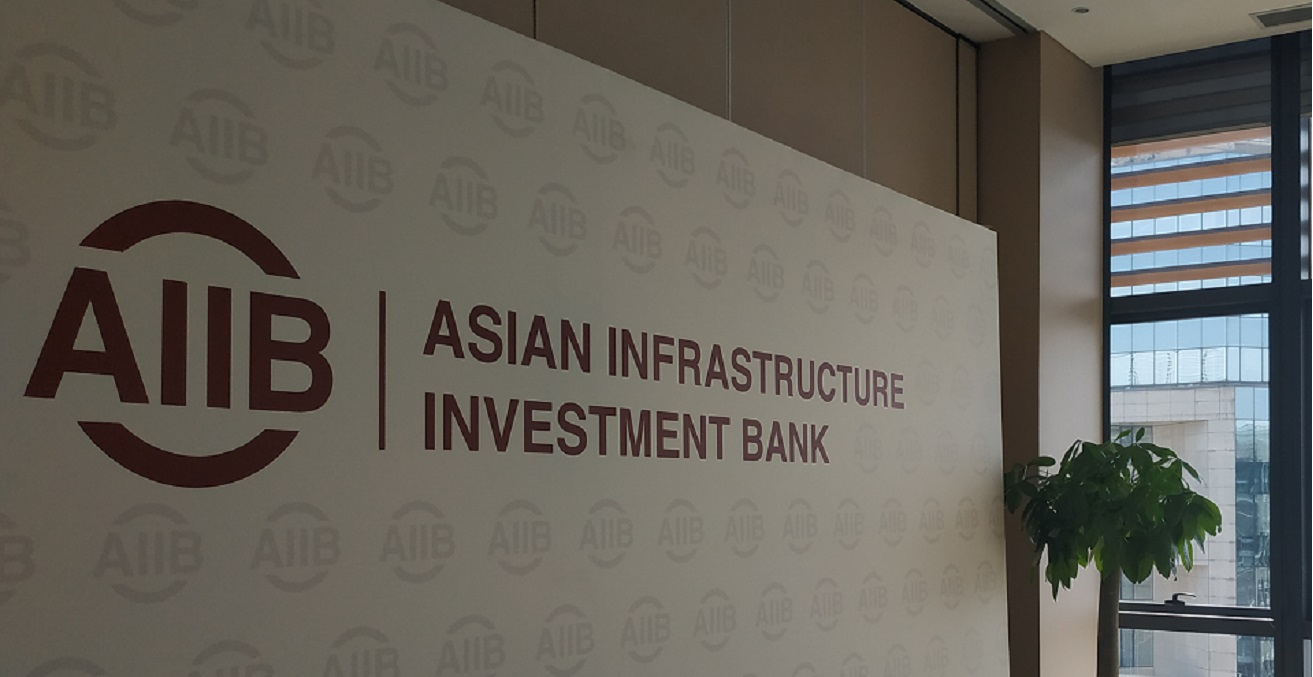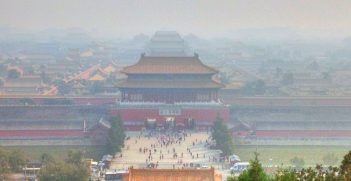Asian Infrastructure Investment Bank Controversy: Claims of Chinese Communist Party Infiltration

The Chinese Communist Party commands a tight structure of control. What does this mean for the mechanics of the Asian Infrastructure Investment Bank (AIIB), amid claims of their infiltration?
Discerning truth from fiction in Beijing’s claims can be extremely difficult, even to Chinese Communist Party members. The recent fiasco at the headquarters of the AIIB illustrates that without transparency and accountability, claims that no political influence in the decision-making structures of the AIIB exist cannot be taken at face value. The burden of proof is on China.
In June, the AIIB’s global head of communications, Canadian citizen Bob Pickard, resigned from his position and immediately caught a flight to Japan. Once out of China, Pickard released a number of explosive claims on social media, announcing that the AIIB had “one of the most toxic cultures imaginable,” and that it had become infiltrated by the Chinese Communist Party (CCP). According to his posts, he was advised to leave the country for his safety, and to not return for some time. Following these events, Canada’s finance minister, Chrystia Freeland, announced that the nation’s government would “immediately halt all government activity at the bank” while an investigation unfolds. An internal review conducted between 15-26 June by Alberto Ninio, a Brazilian national that serves as AIIB general counsel, found “no evidence to support or validate” Pickard’s allegations. The Chinese embassy in Ottawa strongly repudiated the claims, stating that “China is an important member of AIIB and has always followed multilateral rules and procedures, and participated in decision-making through [a] multilateral governance mechanism.”
Canadian politicians, top bureaucrats, and diplomats are not in the habit of making libelous or fraudulent accusations. Nor is it rational for the Canadian government to seek to publicly humiliate one of its most important trade partners over something as comparatively unimportant as boardroom politics and operations.
What does CCP influence mean?
CCP doctrine, which takes a Marxist-Leninist approach to all things, is foundationally about control and economics – in that order. Control begins with core interests, which are the survival of the CCP and, increasingly, the legitimacy of one-man rule. Every other interest of the state is subordinate to these goals, including economic and social development, international governance, and foreign relations.
Since 2013, this command-and-control structure has tightened considerably around the party and the personality of Xi Jinping. The anti-corruption campaign, which began in 2013 to address corruption, but also help Xi arrest control of the factious party, is the means by which conformity to this tightening is generated and monitored. In other words, even if Chinese leaders within the AIIB, of which there are eight in a total of 31 senior positions, could avoid party doctrine in their day-to-day decision-making, prudence dictates that they shouldn’t. Since Xi’s reign began, five million Party members have been caught in the highly networked and in many ways arbitrary dragnet (according to Chinese sources), with a 100 percent conviction rate. As in the corporate sectors, CCP influence within the AIIB is likely to be “subterranean,” as Pickard describes it, with parallel governance systems that are, to those on the outside, highly amorphous. In an open market, this influence includes CCP-induced regulation to drive regularity and financial control. In the private sector, internal governance ensures external liabilities don’t threaten the Chinese economy, while also promoting the party’s strategic five-year plans. Other instances can include seemingly innocuous changes to legal language in international institutions that were originally designed to hold actors accountable for their actions.
In every other role, from civil society to education, and now increasingly the private sector, a CCP command hierarchy dominates decision-making. In state-owned enterprises, company-party secretaries are required to also sit as chairmen of the board. For foreign enterprises with joint-venture charters, this means that the party has to be consulted in any major decision. As the European Chamber of Commerce recently remarked, there is “no way to say no.”
The AIIB is no different. To be sure, the multilateral development bank (MDB) was created precisely because Beijing could not gain more voting rights on other important MDBs, like the World Bank or the Asian Development Bank. While the AIIB “has no declared party structure,” nor do many other apparatuses of the state, despite the overwhelming presence of the CCP.
If, in international politics, the ultimate aim is hegemonic reordering with China at the top, and the party in control, a party-centered structure with unaccountable lines of authority provide a necessary measure of control and command. The intentionally muddling of its language allows the party to work around the many frailties, contradictions, and weaknesses of this control. Official messages must come in falsehoods and half-truths, with much lost in translation. Recent Chinese denials of of Pickard’s claims, therefore, should be treated with necessary suspicion.
China’s problem with international trust
There is no statement by Pickard to indicate what he meant by “Chinese influence.” But much of the damage has already been done. And these are charges, even if untrue, that will continue to trouble China’s image – an outcome of its own making, to be sure.
The most damning charge is the claim that Pickard was advised to flee the country for his own safety. The case of Canadians Michael Kovrig and Michael Spavor, who were detained in 2018 and charged for unspecified national security breaches, looms large in these allegations and has no doubt coloured the lenses through which many Canadians, including in government, now view China. Indeed, China’s arbitrary detainment of foreign citizens and its lack of a transparent judicial system is a larger public relations problem than the Chinese government perhaps understands.
The truth is, the fear of “picking quarrels and provoking trouble” (xúnxìn zīshì), which encompasses all actions of a political nature deemed problematic by the party, has permeated the international community, leading to a distancing of predominantly Western corporate and academic experts from China. Other examples include the case of Richard O’Halloran, an Irish businessman, who was detained in China without charge for nearly three years before he was allowed to return home in January 2022 after an associated Chinese executive was charged with embezzlement.
American businessman Mike Swidan has been detained in China since 2012 on narcotics trafficking charges even though he wasn’t in the country at the time of the allegations and nor did he have any drugs in his possession. Both the US government and the UN believe that Swidan’s detention is both “arbitrary and unjust.”
Moving forward
While it has always been expected that China would dominate decision-making within the AIIB, being the founder and core financial backer, the very considerable investments by other nations have required the bank to adopt a more conservative and internationally standardised operational program. To date, the AIIB has been widely praised for its comparatively liberal, institutional foundations.
With that being said, the explosive allegations by Pickard serve to remind the international community that Chinese governance institutions, processes, and systems don’t adhere to accepted practice and are likely to, over time, seek the revision of norms that have conveniently served the Chinese state. CCP influence in the AIIB will work in the end to undermine the promises of the AIIB and the trust that states have placed in China.
Dr Adam Bartley is a Fulbright Scholar and a post-doctoral fellow at the Royal Melbourne Institute of Technology and program manager of the AI Trilateral Experts Group. Ruby St Ledger is assistant editor at the Australian Institute of International Affairs’ Australian Outlook. She is a fourth-year student undertaking a double degree of International Security Studies and Development Studies at the Australian National University.
This article is published under a Creative Commons License and may be republished with attribution.





